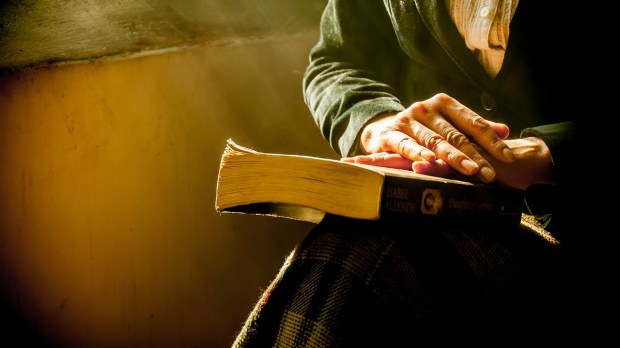It’s a curious thing.
In high school, like many of you, I was assigned to read Frankenstein,To Kill A Mockingbird and Hamlet (among many others) in my English literature class. Initially,I dug into (or perhaps, suffered through) my reading knowing that these were Classics and somehow, I told myself, I was chipping away at The Canon. Thus, notwithstanding language difficulties (Hamlet), elusive deeper meanings (To Kill A Mockingbird) or the sheer unrecognizability in comparison to the popular film adaptations of the tale (Frankenstein), I proudly soldiered on to the final page of each book. Once finished, I smiled triumphantly, dusted my hands and assured myself that my accomplishment was grand and final. Surely, there would be no need for me to re-tread this old ground again.
I was only seventeen.
In fourth grade, Mrs. Duffy required us to memorize (MEMORIZE, imagine…) Robert Frost’s Stopping By Woods on a Snowy Evening. Night after night, for two weeks, I stood in front of my dad after dinner stumbling and stuttering through those four (seemingly interminable) stanzas about downy flakes, my little horse thinking it queer, miles to go and promises to keep. Then, on the appointed day in a scene straight out of the ’50s, each fourth grader stood at his or her desk and, one after another, recited the poem in front of the class. Once finished and taking my seat with sweat rolling down the back of my neck as the next child began droning, I imagined (with a mental smile and dusting of hands) I will never have to recite that poem again.
I was only ten.
On both counts, I was wrong.
For ever since my first pained recitation, Robert Frost’s words have gracefully crept back into my mind at unexpected moments – moments of stress in the heart of my internal medicine residency and moments of repose hiking with my wife and daughters along Duluth’s North Shore. Those four stanzas meant something different to me as I considered the flicker of peace this lone man felt as he stared deep, on the darkest evening of the year, into someone else’s impossibly beautiful woods. Those stanzas counseled me to hold fast to the enduring things amidst the ever-nagging responsibilities reminding me of the “miles to go before I sleep”. To my fourth grade mind, Frost’s poem originally meant little more than a man pausing along his wintry journey. But to my forty-three year old mind, it warmly speaks of life’s road with its delicate mix of intentionality and duty, reflection and responsibility.
Upon re-reading The Classics I first approached in high school, I have been shocked to find how much richer they are and how much more meaning they have “developed”. In once again encountering Hamlet holding the skull of his childhood jester, Yorick, I didn’t see the indecipherable melancholic Prince of Denmark of my high school years. Instead, I found a conflicted man offering a poignant soliloquy on unkind mortality and aching loss. How had I missed this? It reminds me of the (perhaps apocryphal) quote attributed to Mark Twain,
When I was a boy of fourteen, my father was so ignorant I could hardly stand to have the old man around. But when I got to be twenty-one, I was astonished at how much he had learned in seven years.
Clearly, it wasn’t the literature that changed, but me.
Thus, in my middle age, I have come to believe that there are many things worth reading once. But there are even more worth re-reading… again and again. Why? Because we first read a story to understand what happened. Forever after, we re-read it to grasp what it truly means. When we are not haggling over characters and setting and plot, we become keenly aware of the nuance of a phrase, the beauty of a gesture, and the majesty of a theme. “Repetitio est mater studiorum” is how the Latin proverb goes. “Repetition is the mother of learning”. To read and re-read is to draw the courageous Atticus Finch, the tormented Dr. Frankenstein, the anguished Prince of Denmark or the chilled, reflective traveler deeper into our soul.
In reading and re-reading, our facility with language grows, our attention span matures and our sense of the deeply human forms more keenly. For, as we once again approach these works in our later years, something has happened. We have changed. We are no longer boys and girls. We are adults, parents, working stiffs. We have tasted success, yet recognized it for the chimera it can be. We have been touched by true friends and wounded by false ones. We have known something about the tragedy of existence, but also the humor that outlives it. We have seen the dependence of our children and the frailties of our parents. And we have sensed, too clearly, the fallibility of ourselves, but the dignity that somehow lives on. We are inspired, but chastened. Hopeful, but a little weary. And in being a bit older and (hopefully) a bit wiser, we are perhaps a little more receptive to great truths in literature that our younger selves so haughtily and carelessly walked on by. What we now appreciate in our grayness, we never fully apprehended in our youth. Perhaps Heraclitus said it best,
“No man ever steps in the same river twice, for it’s not the same river and he’s not the same man.”
Indeed.
My English literature teachers have long since retired, but the works of William Shakespeare, Harper Lee and Mary Shelley know no terminus in my life. Mrs. Duffy, I am sure, has passed away. But her memory and the words of Robert Frost are as alive to me as my wife’s smile and my children’s laughter. What wonderful, unexpected and enduring gifts I have found in high school book reports and elementary school poems.
Now, if you’ll excuse me, it’s time I got back to reading my book.
Or re-reading it.
Photo credit: Pixabay

